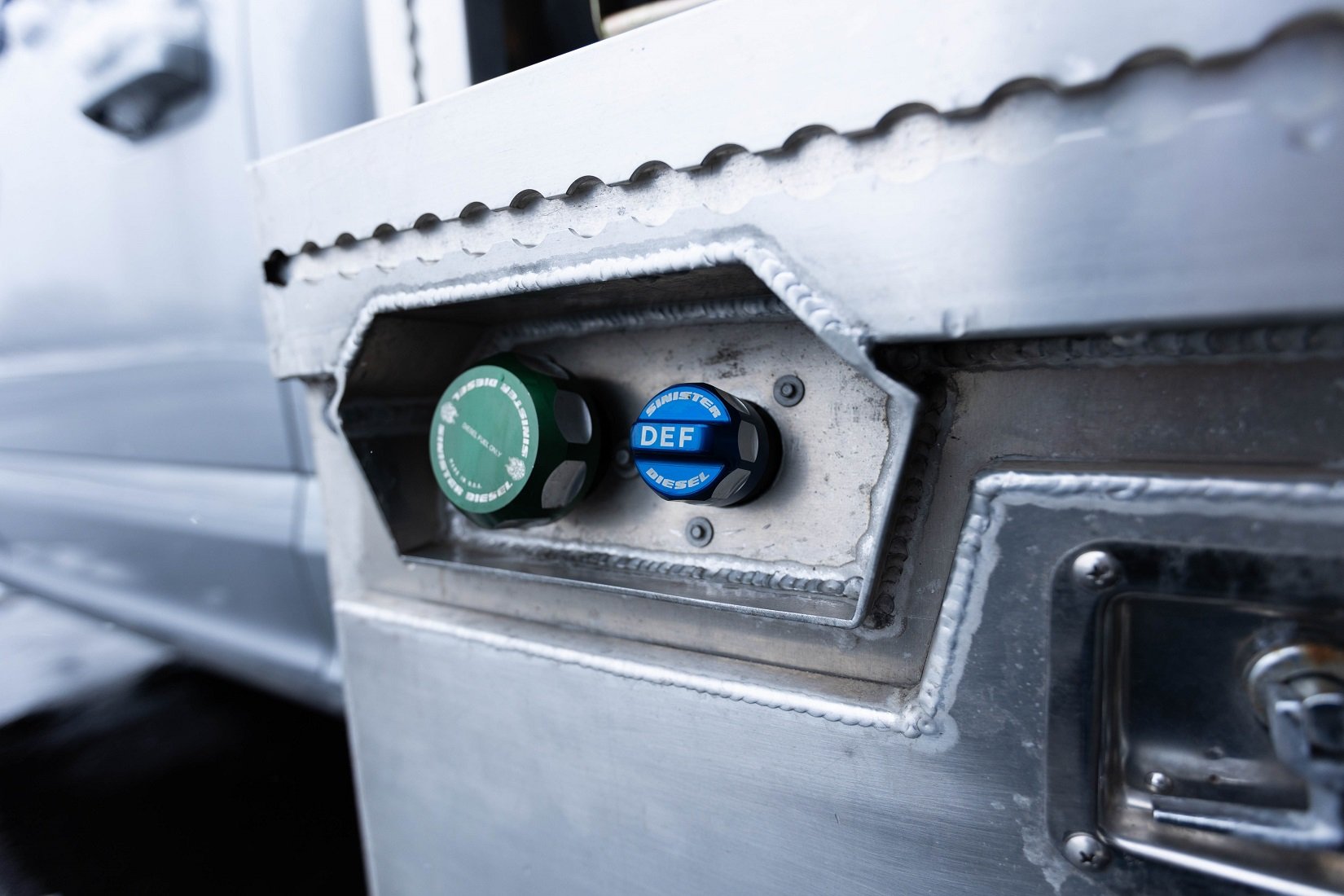What Is Diesel Exhaust Fluid?
Diesel engines are known for their power, fuel efficiency, and durability, making them a popular choice for commercial vehicles, heavy machinery, and even some passenger cars. However, they also produce significant amounts of nitrogen oxides (NOx), harmful pollutants that contribute to environmental problems like smog and acid rain. To combat this, modern diesel engines are equipped with emissions control technologies, including diesel exhaust fluid (DEF).
This blog post will explore what DEF is, its purpose, composition, and operation, and address some frequently asked questions about this crucial fluid.

What Is Diesel Exhaust Fluid?
Diesel engines are known for their power, fuel efficiency, and durability, making them a popular choice for commercial vehicles, heavy machinery, and even some passenger cars. However, they also produce significant amounts of nitrogen oxides (NOx), harmful pollutants that contribute to environmental problems like smog and acid rain. To combat this, modern diesel engines are equipped with emissions control technologies, including diesel exhaust fluid (DEF). This blog post will explore what DEF is, its purpose, composition, and operation, and address some frequently asked questions about this crucial fluid.

The primary purpose of diesel exhaust fluid is to reduce NOx emissions produced by diesel engines. NOx gases are a major environmental concern as they contribute to smog, acid rain, and respiratory problems in humans. DEF works in conjunction with SCR technology to break down these pollutants into harmless nitrogen and water vapor, thereby significantly lowering the environmental footprint of diesel vehicles.
Regulatory Compliance
One of the driving forces behind the widespread adoption of DEF is regulatory compliance. Governments around the world have implemented stringent emissions standards to curb pollution from diesel engines. In the United States, the Environmental Protection Agency (EPA) has established Tier 4 emissions standards, which require significant reductions in NOx emissions. Similarly, the European Union has implemented the Euro 6 standards with similar goals. Using DEF helps diesel vehicles meet these regulations and avoid hefty fines and penalties.
Environmental Impact
Beyond regulatory compliance, the use of DEF reflects a commitment to environmental stewardship. By reducing NOx emissions, DEF helps improve air quality, benefiting public health and the environment. Cleaner emissions contribute to lower smog levels and less acid rain, positively impacting ecosystems and biodiversity.
DEF is composed of two primary ingredients:
- 1. Urea (32.5%): This organic compound is a byproduct of various agricultural and industrial processes. In DEF, urea acts as the active ingredient that reacts with NOx gases.
- 2. Deionized Water (67.5%): This water is free of impurities that could harm the SCR system. It serves as the solvent for urea, ensuring it can be effectively sprayed into the exhaust stream.
The precise formulation of 32.5% urea and 67.5% deionized water is critical for the optimal performance of the SCR system. This concentration ensures that DEF freezes at 12°F (-11°C), making it easier to manage in various climates.
The process of how DEF works to reduce emissions involves several steps:
- Injection: DEF is stored in a dedicated tank on the vehicle and is injected into the exhaust stream upstream of the SCR catalyst.
- Thermal Decomposition: When DEF is exposed to the hot exhaust gases, it decomposes into ammonia (NH3) and carbon dioxide (CO2).
- Catalytic Reaction: The ammonia then reacts with the NOx gases in the presence of the SCR catalyst. This reaction converts NOx into nitrogen (N2) and water (H2O), which are harmless and naturally occurring components of the air we breathe.
- Emission Reduction: The end result is a significant reduction in NOx emissions, helping the vehicle comply with environmental regulations and reducing its impact on air quality.

1. How often do I need to refill DEF?
The frequency of DEF refills depends on the vehicle and its usage. Generally, DEF consumption is about 2–3% of diesel fuel consumption. For most vehicles, this means refilling the DEF tank every few thousand miles, typically during routine maintenance intervals.
2. Can I use water instead of DEF?
No, you cannot use water as a substitute for DEF. The specific urea concentration and quality of deionized water are essential for the SCR system to function correctly. Using water or any other fluid can damage the system and void warranties.
3. Is DEF safe to handle?
Yes, DEF is safe to handle. It is non-toxic, non-flammable, and poses no significant health risks if used correctly. However, it can be corrosive to certain metals, so it’s important to store and handle it properly, using DEF-compatible containers and equipment.
4. What happens if I run out of DEF?
If your vehicle runs out of DEF, the engine’s performance will be affected. Most modern diesel vehicles are programmed to reduce engine power or even prevent the engine from starting until the DEF tank is refilled. This ensures compliance with emissions regulations.
5. Can DEF freeze?
Yes, DEF can freeze at temperatures below 12°F (-11°C). However, most vehicles are equipped with heated DEF tanks and lines to prevent freezing in cold climates. If DEF does freeze, it will thaw and return to its usable state without any loss of effectiveness.
Diesel exhaust fluid plays a vital role in reducing harmful emissions from diesel engines. By understanding what DEF is, its purpose, composition, and how it works, drivers and fleet operators can ensure their vehicles remain compliant with environmental regulations and operate efficiently. Regular maintenance and proper handling of DEF are essential for the longevity and performance of the SCR system, ultimately contributing to a cleaner and healthier environment.
Click on the following link to read another blog post: What Is Payload Capacity?















